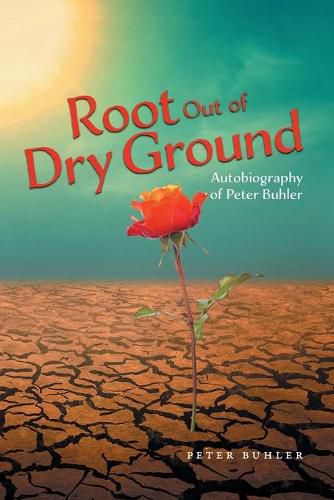Readings Newsletter
Become a Readings Member to make your shopping experience even easier.
Sign in or sign up for free!
You’re not far away from qualifying for FREE standard shipping within Australia
You’ve qualified for FREE standard shipping within Australia
The cart is loading…






This title is printed to order. This book may have been self-published. If so, we cannot guarantee the quality of the content. In the main most books will have gone through the editing process however some may not. We therefore suggest that you be aware of this before ordering this book. If in doubt check either the author or publisher’s details as we are unable to accept any returns unless they are faulty. Please contact us if you have any questions.
There is a common hope for a richer, deeper life that connects a person to their past, to the people around them, and to a transcendental source-sometimes referred to as God, or the Unconscious. Root Out of Dry Ground provides an exploration into Carl Jung’s depth psychology as it is used to understand a person’s growth, the development of spirituality and religion in the West, as well as ways to live outside of traditional cultural and religious structures.
Root Out of Dry Ground is an autobiographical sketch of Peter Buhler’s life in southern Manitoba and Alberta; it covers Mennonite history in Canada and in Europe, and offers a philosophical analysis of historical developments across both Western and Eastern cultures. The book utilizes the ideas of Carl Jung in order to analyze historical developments over thousands of years, with a particular emphasis on world religions and the cultures they gave birth to, and to better understand Christian language and theology. In the autobiographical sketch, there is also careful attention to Peter Buhler’s family, with an affirming remembrance of his brothers and sisters, and their mother and father.
Root Out of Dry Ground serves as a foundation for bringing people together in a meaningful way, where the ideas of great thinkers and artists can help guide discussions and explorations of reality particularly for those who have lost their religious practice but remain rooted in their religious language and story.
$9.00 standard shipping within Australia
FREE standard shipping within Australia for orders over $100.00
Express & International shipping calculated at checkout
This title is printed to order. This book may have been self-published. If so, we cannot guarantee the quality of the content. In the main most books will have gone through the editing process however some may not. We therefore suggest that you be aware of this before ordering this book. If in doubt check either the author or publisher’s details as we are unable to accept any returns unless they are faulty. Please contact us if you have any questions.
There is a common hope for a richer, deeper life that connects a person to their past, to the people around them, and to a transcendental source-sometimes referred to as God, or the Unconscious. Root Out of Dry Ground provides an exploration into Carl Jung’s depth psychology as it is used to understand a person’s growth, the development of spirituality and religion in the West, as well as ways to live outside of traditional cultural and religious structures.
Root Out of Dry Ground is an autobiographical sketch of Peter Buhler’s life in southern Manitoba and Alberta; it covers Mennonite history in Canada and in Europe, and offers a philosophical analysis of historical developments across both Western and Eastern cultures. The book utilizes the ideas of Carl Jung in order to analyze historical developments over thousands of years, with a particular emphasis on world religions and the cultures they gave birth to, and to better understand Christian language and theology. In the autobiographical sketch, there is also careful attention to Peter Buhler’s family, with an affirming remembrance of his brothers and sisters, and their mother and father.
Root Out of Dry Ground serves as a foundation for bringing people together in a meaningful way, where the ideas of great thinkers and artists can help guide discussions and explorations of reality particularly for those who have lost their religious practice but remain rooted in their religious language and story.